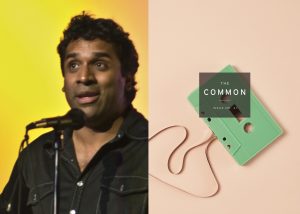Ravi Shankar speaks to managing editor Emily Everett about his essay “The Five-Room Box,” which appears in The Common’s spring issue. In this conversation, Shankar talks about constructing this essay on identity, family, and fitting in from an excerpt of his memoir, Correctional, about his time spent in prison. He also discusses how that time changed the course of his academic work, what it’s like to transition from poet to prose-writer, and the privilege and profiling Asian-Americans experience as the ‘model minority.’



















